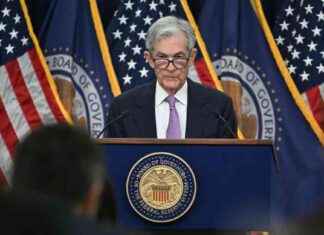Volkswagen has agreed to pay at least $1.26 billion to fix or buy back nearly 80,000 polluting 3.0 liter diesel-engined vehicles — and could be forced to pay up to $4.04 billion if regulators don’t approve fixes for all vehicles, court documents filed late Tuesday showed.
Continue Reading Below
In December, VW said it had agreed to buy back 20,000 vehicles and expected to fix another 60,000. The settlement documents show that if regulators do not approve fixes, the German automaker’s costs could jump dramatically.
Under the settlement that must be approved by a U.S. judge, owners of 3.0 liter vehicles who opt for fixes will get compensation of between $7,000 and $16,000 from Volkswagen if emissions fixes are approved in a timely fashion — and the automaker will pay another $500 if the fix affects a vehicle’s performance. Owners who opt for a buyback will get $7,500 on top of the value of the vehicle.
Volkswagen could be forced to pay as much as $4.04 billion — and much more in individual owner compensation — if regulators reject a fix entirely, according to the U.S. Federal Trade Commission, which had sued VW and voted unanimously to back the deal.
The settlement is the last major hurdle to Volkswagen moving beyond its emissions scandal, though it still faces suits from some U.S. states and investors.
Volkswagen Group of America chief executive Hinrich Woebcken said with the agreement all owners of polluting diesels "will have a resolution available to them. We will continue to work to earn back the trust of all our stakeholders."
Continue Reading Below
ADVERTISEMENT
VW has been barred from selling diesels in the United States since late 2015.
VW has agreed to repurchase the 2009-2012 Volkswagen and Audi 3.0 liter vehicles, but believes it will be able to fix the 2013-2016 Volkswagen, Audi, and Porsche 3.0 liter vehicles.
BOSCH AGREEMENT
Separately, German auto supplier Robert Bosch GmbH has agreed to pay $327.5 million to compensate owners of polluting U.S. vehicles.
VW previously agreed to spend up to $10.03 billion to buy back up to 475,000 polluting 2.0 liter vehicles after it admitted it installed secret software to evade emissions controls.
Diesel car owners sued Bosch in 2015 claiming the company helped design secret "defeat device" software that allowed VW to evade emissions rules and alleged Bosch was a "knowing and active participant" in Volkswagen’s decade-long scheme.
Under the agreement, Bosch will pay $163.3 million to address 2.0 liter vehicle claims, with most owners getting $350 each, while 3.0 liter owners will split $113.3 million. Most 3.0 liter owners will receive $1,500 from Bosch.
A federal judge in San Francisco will hold a hearing to approve the settlements on Feb. 14.
The lead lawyer for the vehicle owners, Elizabeth Cabraser, said in statement the settlement provides "substantial benefits to both consumers and the environment."
VW earlier agreed to pay $225 million to offset the excess pollution from the 3.0 liter vehicles, on top of $2.7 billion it agreed to pay to offset 2.0 liter pollution.
The automaker is set to plead guilty on Feb. 24 in Detroit to three felony counts as part of a plea agreement with the U.S. Justice Department to resolve the government’s excess diesel emissions investigation.
As part of a $4.3 billion settlement with U.S. regulators, the German automaker has agreed to sweeping reforms, new audits and oversight by an independent monitor for three years to resolve diesel emissions cheating investigations.
Under the settlement of charges, it admitted to installing secret software in U.S. vehicles to allow them to emit up to 40 times the amount of legally permitted pollution, Volkswagen agreed to change the way it operates in the United States and other countries.
The Justice Department charged VW with conspiring for nearly 10 years to cheat on diesel emissions tests. The German automaker agreed to pay $4.3 billion in U.S. civil and criminal fines. It has also charged seven current and former VW executives with wrongdoing.
In total, VW has now agreed to spend up to $25 billion in the United States to address claims from owners, environmental regulators, U.S. states and dealers, and offered to buy back about 500,000 polluting vehicles.
This week, Volkswagen topped Toyota Motor Corp as the world’s largest automaker by sales.
(Reporting by David Shepardson; editing by Jason Neely and Adrian Croft)
Our editors found this article on this site using Google and regenerated it for our readers.







